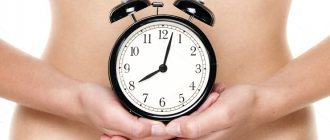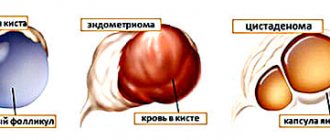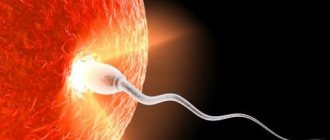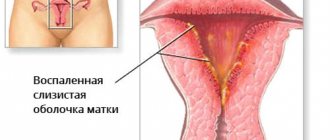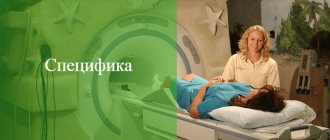In the life of every woman, there inevitably comes a period when the body enters into age-related changes. As a result of these changes, a woman gradually loses her ability to become pregnant and bear children. The woman is worried about the upcoming changes, she wonders what will happen to her next, what is menopause, is it possible to get pregnant during menopause.
- Menopause and its periods Premenopause
- Menopause
- Postmenopause
- Why yes"
Probability of fertilization during menopause
Conception during menopause can occur only due to the presence of the following factors:
- the formation of a follicle in the ovaries, which serves as an incubator in which the processes of egg maturation occur;
- active production of progesterones and estrogens;
- preparing the uterus for the arrival of a fertilized egg.
However, menopause is characterized by reverse processes in the body, namely:
- quantitative decrease in follicle content;
- decline in the functionality of the ovaries, which leads to a decrease in the level of produced eggs;
- deterioration of hormonal levels in the body, characterized by a decrease in the level of secretion of sex hormones.
The result of such changes in the body of women in menopause is the reduction of the probability of ovulation processes to zero and the complete inability to give birth to children. But not every representative of the fair sex understands that menopause is a gradual decline in reproductive functionality that can last for many years.
For example, if a woman’s first signs of menopause appeared at the age of 43-44, then a 100% decline in reproductive function may occur only by the age of 50, or even later. Therefore, during these intervals between the fertile period and the onset of old age, there is a possibility of becoming pregnant during menopause.
How does pregnancy manifest during menopause?
Pregnancy during menopause can most often occur with its early manifestation and be accompanied by manifestations in the form of:
- cessation of the menstrual cycle;
- morning sickness;
- changes in taste buds;
- increased sensitivity;
- increase in size of the mammary glands;
- individual intolerance to certain smells and foods;
- spasmodic nature of the psycho-emotional state;
- insomnia.
In this case, the signs of menopause and pregnancy are very similar, and not all women immediately understand that nature has given them a chance to find another joy in life, and for the first time or again experience all the delights of motherhood. Often women think that I am going through menopause, and all the symptoms that appear will pass sooner or later. But if a woman has recently been active sexually without using contraceptives, then it is impossible to say with certainty what the symptoms indicate - it could be menopause or pregnancy.
The use of conventional tests to determine pregnancy during menopause will not give definite results, since the effect of the tests is to determine the hormonal level in a woman’s body, which should change during pregnancy, but which also changes during menopause.
Therefore, in order to find out exactly what is happening in the body - menopause or pregnancy - you need to contact a specialist and undergo the necessary research.
Signs of pregnancy
Menopause is often accompanied by a number of symptoms that are similar to the initial signs of pregnancy: hot flashes, emotional instability, headaches and dizziness, lack of menstruation and others.
Often women do not know how to recognize pregnancy and mistake its symptoms for menopause. Especially if fertilization occurred during absent periods. This leads to late diagnosis of the fetus, untimely screening of pregnant women and an increased risk of developing pathologies in the fetus.
The distinctive signs of pregnancy are the following:
- nausea, worse in the morning, aggravated by strong odors;
- sudden swelling, sudden weight gain;
- swelling of the mammary glands, increased sensitivity;
- daytime drowsiness, insomnia;
- loss of strength, lethargy;
- frequent urination;
- aching pain in the lower back;
- severe headaches not related to blood pressure;
- change in taste preferences.
Such symptoms occur in most pregnant women, but an asymptomatic pregnancy is also possible, when there are no signs. With this progression, women learn about their position in the second and sometimes in the third trimester, the abdominal circumference increases significantly and the baby begins to actively move and push. You can find out about the situation directly during a screening examination with a gynecologist, which is recommended to be done twice a year during premenopause and/or when any complaints arise.
The possibility of conceiving a child in different phases of menopause
The climacteric period in a woman's life is divided into three main phases, in each of which an unplanned pregnancy can occur, but with different probabilities. Let's look at each of them:
- The first phase of menopause is premenopause , characterized by the beginning of a decline in ovarian functionality. In premenopausal women, there is a high probability of fertilization and the possibility of becoming pregnant during menopause.
- The second phase of menopause - perimenopause , is characterized by a complete cessation of ovarian function, but its duration can vary from several months to a year. During this period, it is unlikely that pregnancy may occur. The chances of conceiving a child become zero in this period if there is no menstrual flow for 12 months after menopause.
- The last stage of the menopause is postmenopause . At this stage, no eggs are produced, and in the absence of eggs, pregnancy is impossible.
When asked whether a woman can become pregnant after menopause, many experts argue that this is possible, but only strictly according to individual characteristics, since such a pregnancy is not possible for every female body.
Sometimes, with an urgent desire to give birth to a child during menopause, doctors are forced to use the method of in vitro fertilization using a healthy donor’s egg. This method of fertilization gives a woman every chance of a normal pregnancy in adulthood and of giving birth to a healthy baby on her own.
Pregnancy after menopause
After menopause, during menopause and postmenopause, virtually no hormones are secreted and the supply of eggs in the follicles is minimal. During this period, conception naturally without additional stimulation is extremely rare and is an exceptional case. If you cannot get pregnant, but a woman wants to give birth to a child, it is possible to use several ways to get pregnant and give birth:
- ovarian stimulation – after examination, the patient is prescribed hormonal drugs that stimulate the ovaries and activate the maturation of eggs. Often stimulation lasts at least 7 months. This method is suitable for menopause, which has just begun and in which the appendages have not yet atrophied;
- in vitro fertilization - a fertilized egg is implanted into the uterus. It may belong to the expectant mother or be a donor. It is important to take into account that with age, the genital organs age, and the chance of bearing a child decreases;
- surrogacy – a fertilized donor or native egg is implanted into the surrogate mother’s uterus.
Health risks during late pregnancy
Pregnancy during menopause can negatively affect a woman's health. This is due to the fact that pregnancy leads to a number of changes in the body, which has a stressful effect on its general condition. And in the menopause, many changes already occur against the background of hormonal changes. In combination, pregnancy and menopause can contribute to the development of pathologies such as:
- diabetes;
- arterial hypertension;
- exacerbation of existing chronic diseases that are in remission;
- dysfunction of the renal organ system;
- violation of mineral metabolic processes;
- pathological decrease in the level of calcium in the skeletal system of the body, which contributes to the development and growth of the baby;
- high probability of prolapse of the internal pelvic organs;
- the risk of developing a genetic defect in a child (for example, Down syndrome), which increases with the physiological age of the mother. That is, the older a woman is at the time of conceiving a child, the higher the chances of developing this pathology, as well as the likelihood of prematurity or miscarriage.
Also, do not forget that often pregnant women aged 45-50 years and older have a desire to give birth on their own. This can lead to complications such as severe ruptures of the birth canal and profuse hemorrhage after childbirth, during which infectious microorganisms can enter the body and begin their pathological development.
The same complications can occur with gynecological abortions during menopause.
Therefore, every woman should think several times about whether pregnancy is even necessary at such a late age, since there is not much time left to raise and raise a child.
Is it dangerous
Starparous women are considered to be women who give birth to a child between 50 and 57 years of age. Moreover, the older the pregnant woman, the more difficult it will be for her to bear the baby. There are cases when such mothers give birth to a child with certain pathologies. So, the danger of pregnancy during menopause is as follows:
- There is a high probability of the child developing various disabilities (mental and physical).
- Artificial termination of pregnancy can lead to complications and also cause the development of infectious diseases.
- A woman’s body expends all its strength to ensure that the fetus grows and develops, but it still feels a lack of essential nutrients.
- Bone tissue begins to break down more actively.
- In internal organs (for example, kidneys, genitourinary system), the functioning may well be disrupted.
- After conception and during the period of bearing a baby, a woman’s body continues to undergo changes associated with the onset of menopause.
Contraception during menopause
The most appropriate method to prevent unwanted and unplanned pregnancy should be selected by a qualified specialist. This is due to the fact that during menopause the immune system of the female body is significantly reduced and for the prevention and treatment of associated symptoms it is necessary to select contraceptives that will have preventive properties against cancer pathology and osteoporosis.
It is important to remember that when using intrauterine contraceptives there may be a risk of exacerbation of chronic diseases. And taking oral spectrum drugs can threaten the development of complications from the vascular system and metabolic processes.
Therefore, it is not recommended to independently select contraceptives during menopause. It is better to undergo all the necessary examinations and, together with a qualified specialist, taking into account all the individual characteristics of the body, choose the most suitable method of protection.
If, while taking contraceptive drugs, fertilization of the egg does occur (the chances of such a pregnancy occurring are very small, but the probability still exists), then before making any decision, a woman in adulthood should consider several times all the positive and negative aspects of such a piquant condition. Maybe it’s better to devote the rest of your life to yourself and your chosen one and enjoy all the delights of life, or plunge into motherhood, which can smooth out all the menopausal symptoms. In any case, the decision remains only with the woman.
Interesting and educational video on this topic:



